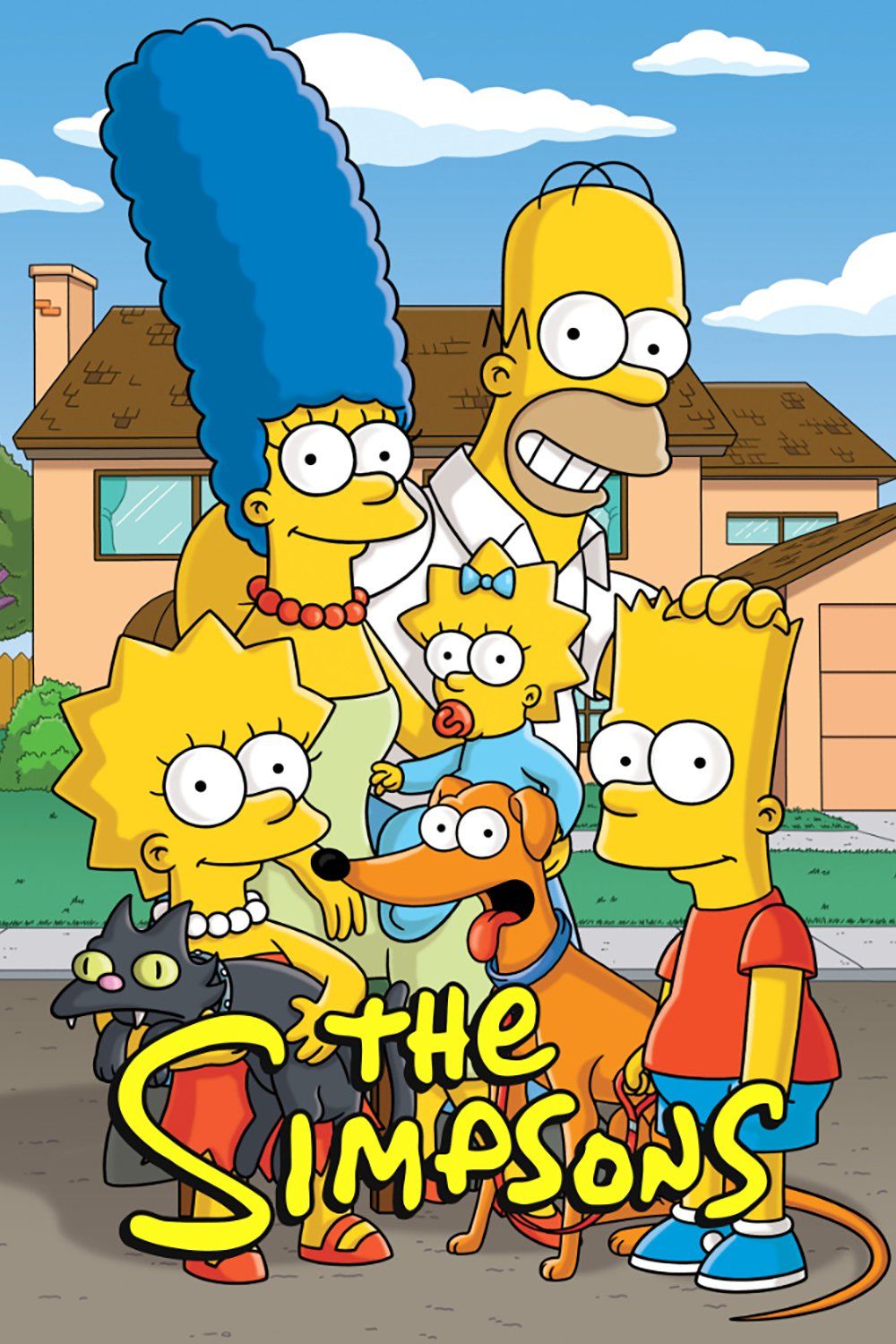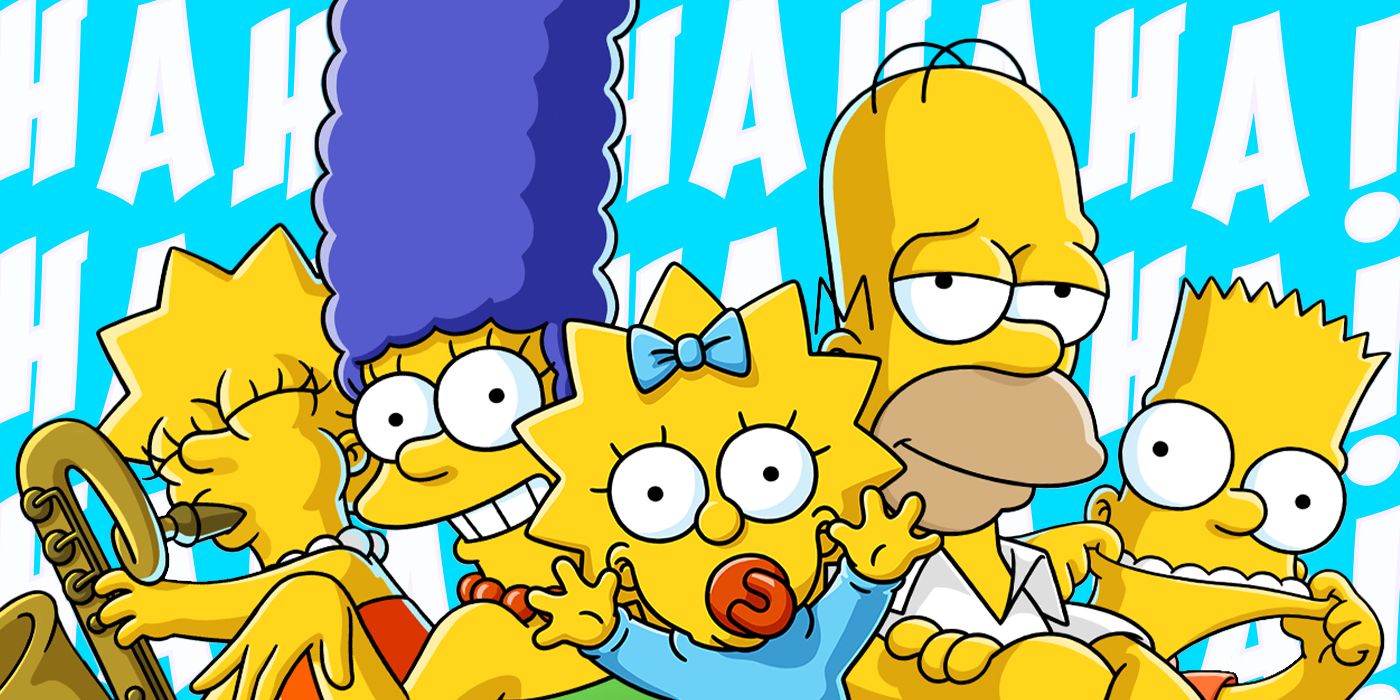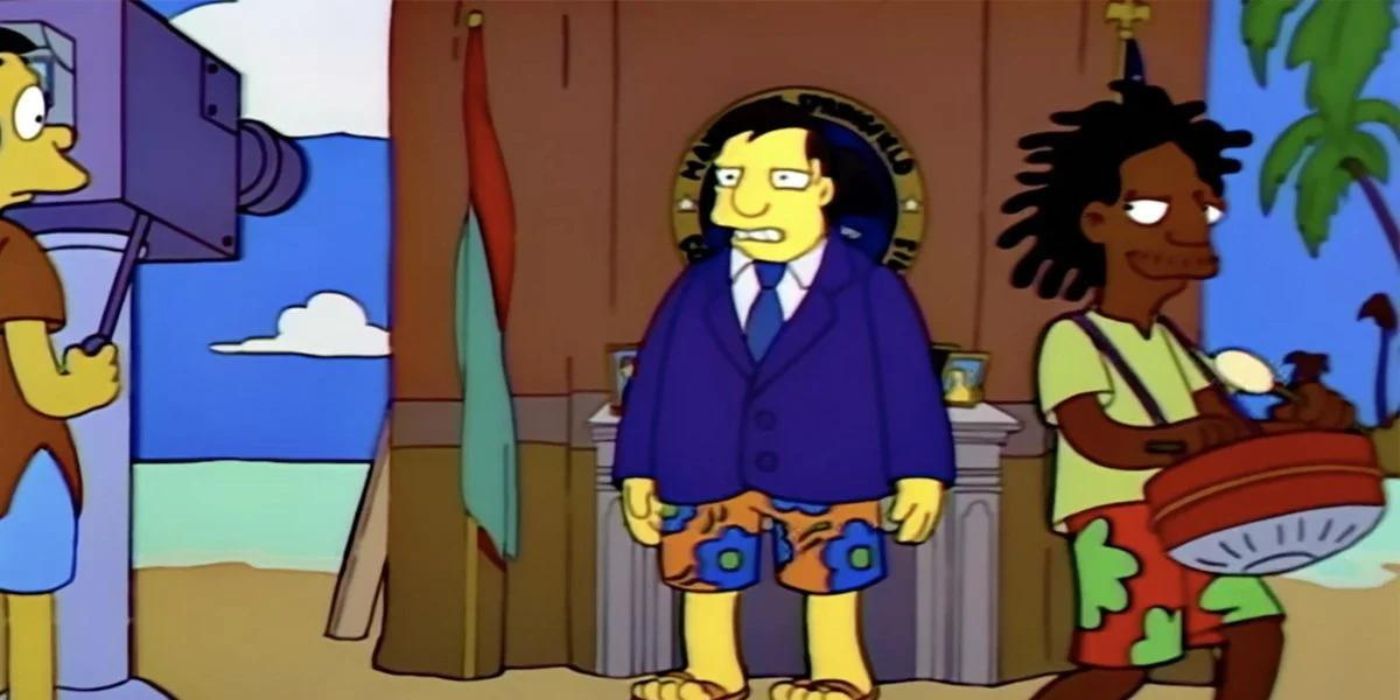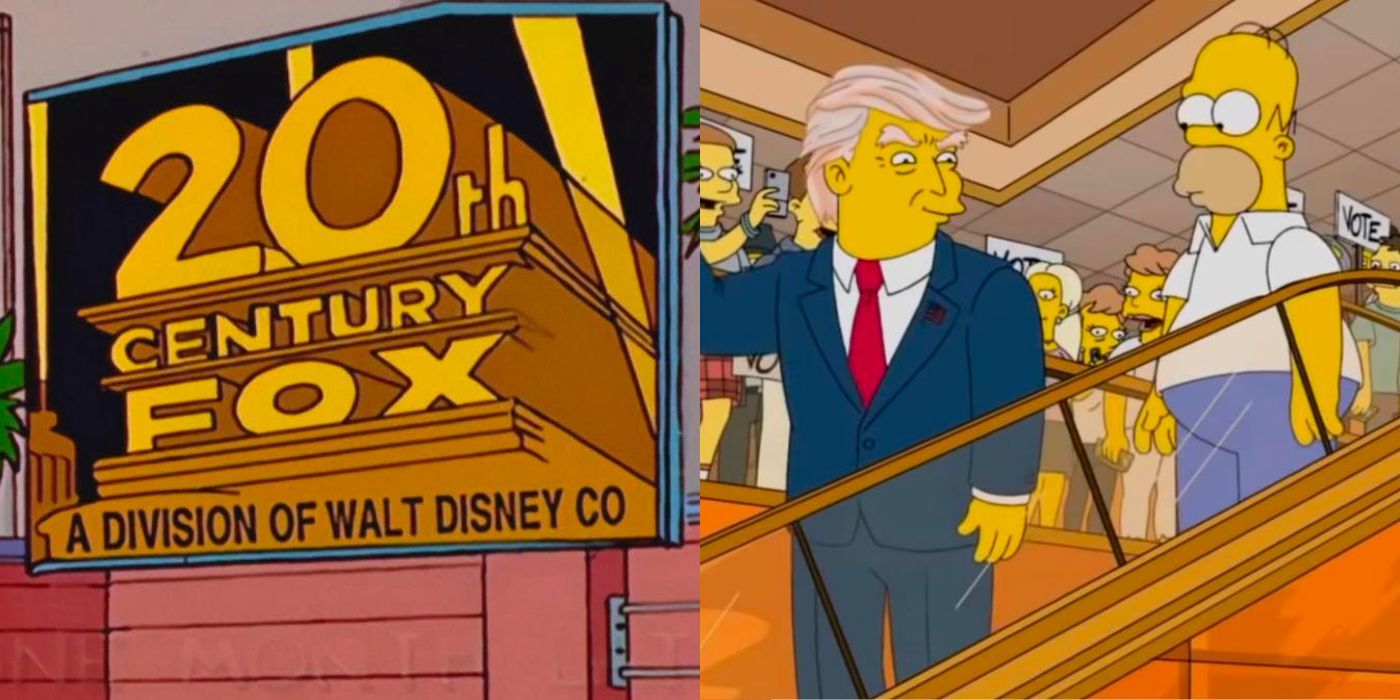The Big Picture
-
The Simpsons
‘ so-called predictions are actually satirical commentary on society’s stupidity - Many of the show’s “predictions” are simply coincidences or a result of repeating human behaviors
- The show’s clever comedy writers mock daily life in a way that seems predictive, even if actual predictions are limited to a few cases.
Whenever something noteworthy or downright idiotic takes social media by storm, a diehard Simpsons fan will appear in the comments with a GIF, video, or screen grab to prove that the brilliant prognosticators on the show’s writing staff predicted the event and/or calamity long ago. What became something of a meme on Twitter and other social media platforms resulted in a slew of list-based articles opining the show’s divinely accurate soothsaying. But many of these so-called predictions can be boiled down to a philosophy one might refer to as Simpsons’ razor.
This is a humorous spin on an actual real philosophy, Occam’s razor, which suggests that the simplest explanation is often the best one. Simpsons’ razor, in contrast, is a philosophy stating that the dumbest possible result is often the most likely. The comedy writers on The Simpsons may appear to be predicting future events, but in reality, they are constructing satiric barbs that mock society’s stupidity by exaggerating it. The Simpson family isn’t predicting the future; our modern society is simply racing The Simpsons to see who can present the dumbest possible outcome for humanity.

The Simpsons
The satiric adventures of a working-class family in the misfit city of Springfield.
- Release Date
- December 17, 1989
- Main Genre
- Comedy
- Studio
- Fox
- Seasons
- 36
‘The Simpsons’ Predictions Are Impressive, but the Writers Are Just Paying Attention
Stupidity is a two-way street, of course, and whether that street is Evergreen Terrace or Pennsylvania Avenue, trying to find the culprit behind this worldwide “process of dumbening” (to quote Lisa Simpson, voiced by Yeardley Smith) might resemble another popular meme: multiple Spider-Men pointing at one another in an accusatory manner. There is a Simpsons quote for every situation, and one that explains why the show’s predictions feel so prescient comes from a 1996 episode called “Much Apu About Nothing.” When an angry mob descends on Mayor Quimby’s (Dan Castellaneta) office, Quimby shuts the doors and asks his aide, “Are these morons getting dumber or just louder?” to which the aide replies, “Dumber, sir.” A less “cromulent” article might claim that this is another prediction that The Simpsons nailed completely, but in truth, it serves as an example of why many of the so-called predictions are relatively unimpressive.
The Simpsons writers were merely commenting on a situation that already existed at the time of the episode’s writing, namely the public’s desire for government programs being undercut by people’s unwillingness to pay additional taxes to keep those programs alive. In the episode, Quimby uses immigrants as a scapegoat for the tax hike, and the people of Springfield become newly mistrustful of immigrants as a result. This again could be a play right out of the modern Republican playbook, but the reason it feels so continually relevant and perhaps predictive is the fact that it is a long-trodden path, a pattern of behavior in which politicians blame a group seen as an untrustworthy “other” and demagogue against them in order to rally support. For those looking for evidence of this political methodology, try reading up on any U.S. war, political campaign, or human rights movement, just for starters.

Related
‘The Simpsons’ Is Still as Funny as It’s Always Been
The past two seasons have proven the writers’ ability to create a modern show that is still hilarious and compelling.
Is ‘The Simpsons’ Actually Predicting the Present?
Taking the “louder or dumber” scene as a microcosm of The Simpsons‘ predictions as a whole, we can extrapolate that many of the show’s most heralded predictions are either throwaway gags that coincidentally came true or examples of patterns in human nature that recur frequently. Even among the better of TheSimpsons prediction list-icles, there tend to be one or two lightweight or forced entries used to round out the list, which speaks more to the reader’s confirmation bias than to any prognosis by the show’s writers.
For example, the 1995 episode “Lisa’s Wedding” is said to have predicted smartwatches and video calls, but even Maxwell Smart used a wrist communicator in the classic 1965 spy comedy series Get Smart, and 1989’s Back to the Future Part II featured a video telephone. If we apply the same logic here that the list-makers did, does that mean that Get Smart and Back to the Future predicted jokes on The Simpsons? Or is it more likely that the pop-culture-savvy Simpsons writers saw these or similar works of fiction and actively (or subconsciously) referenced them in these episodes?
In similar exploitation of a terminally online person’s willingness to believe a meme, these lists often claim that “Lisa on Ice” predicted problematic autocorrecting on Apple devices. The prediction in question occurs when bully Kearney (Nancy Cartwright) tells his cohort Dolph to take a memo reminding him to “Beat up Martin,” referring to nerdy student Martin Prince (Russi Taylor). Dolph scribbles the note on the screen of his Apple Newton, and the device incorrectly translates his writing to read “Eat up Martha.”
This would be an incredible example of the show’s predictive powers if not for the fact that the Apple Newton actually existed. The show’s writers were literally making fun of an existing Apple product. The only reason the “prediction” seemed to hold true for iPhones as well is because Apple has been making cutting-edge technology with laughable shortcomings for decades. As Lisa says to a fortune-teller in “Lisa’s Wedding,” “Wow. You can see into the… present.”
‘The Simpsons’ Satirize Stupid Situations… Which Also Happen to Then Occur in Real Life
The wedding episode is also said to have predicted the construction of London skyscraper, The Shard, a laudably pointy building that seems “to slip the surly bonds of Earth and touch the face of God,” as 1940s poet John Gillespie Magee Jr. or The Simpsons character Colonel Leslie Hapablap (R. Lee Ermey) might put it. (Is referencing old poetry a means of predicting the past? By God, The Simpsons have done it again!) Fans of nebulous predictions everywhere believe that The Shard is miraculously featured in the background of a shot of the digital clock face on the Palace of Westminster. Those who believe in coincidence might have mistaken this squiggle for an incorrectly placed Washington Monument or perhaps a random, indiscernible spike meant to balance out the shot when positioned next to a hastily rendered Tower Bridge. Only galaxy-brained cartoon fans will comprehend the startling truth: that this is clearly an example of otherworldly predictive power. (This might be a good time to use Comic Book Guy’s sarcasm detector. Then again, it might explode.)
Some predictions can be explained by reality chasing cars headed straight for it. The Simpsons will satirize the stupidity of a recurring situation, and humanity’s inability to learn from its mistakes will make that satire relevant time and again. Did The Simpsons episode “Itchy & Scratchy & Marge,” predict one Russian woman’s outrage over the nudity of Michelangelo‘s David, or was writer John Schwartzwelder simply mocking puritanical outrage in general, using pants on David as a hilarious send-up of bizarre censorship? Though this example is often mentioned on Simpsons prediction list, it is never clear whether the real David was ever clothed by the Russians or if one woman’s disgust at seeing a stone penis was given wildly outsized media coverage. Can it truly be considered a prediction if it is unclear whether the event comes to pass?
Political Predictions in ‘The Simpsons’ Are Based on Past Behaviors
Several of the show’s amazing predictions have shockingly claimed that the U.S. government might one day be run in an incompetent manner. When the reader has finished clutching their pearls, take for instance the joke where Mayor Quimby left town during a disaster for a beach vacation. The list-icles claim that this is a prediction that Texas Senator Ted Cruz would leave Texas to go to Cancun during a deadly winter storm. Since Cruz purports himself to be a fan of The Simpsons, it is possible that he got the idea to ditch his constituents from the show, but it is more likely that this joke is broadly satirizing any and all politicians who make big promises but fail to deliver for the people who elected them, especially during times of crisis. Though the beach vacation aspect is the same, there was, unfortunately, never a point where Cruz was interrupted by a steel drum performance on camera, making this prediction feel like a stretch.
One of the most staggering Simpsons predictions is also the best example of the United States becoming indistinguishable from satire. In a March 2000 episode called “Bart to the Future,” a vision shows an adult Lisa as U.S. President telling her cabinet that their administration has inherited “quite a budget crunch from President Trump.” Again, this would be frighteningly predictive if the show had not been referencingactual events that occurred prior to the episode. In 1999, Trump left the Republican Party to try and become the Reform Party’s presidential nominee; before that, he had considered running for president in the late ’80s. Though it is disappointing that the Trump Presidency came to pass, The Simpsons failed to warn the public about more pressing concerns, like the insurrection attempt at the Capitol on January 6, 2021. If The Simpsons writers could magically predict the future, it feels fairly selfish that they omitted that side-note.
More recently, the L.A. Times reported that The Simpsons predicted Presidential Nominee Kamala Harris’ presidential run twenty years ago in the episode “Bart to the Future.” In this episode, Lisa becomes the President while Bart freeloads at the White House. Fans were quick to point out the absurdity of Lisa running a completely inept and, dare we say, cartoon government. They even went as far as to point out that Lisa is wearing a similar outfit to the one Harris wore when she was sworn in as VP. But this sentiment is a bit of an overreach. Women in politics often wear conservative suits. Just look at Hillary Clinton or any woman in politics ever. You would think they shop at the same stores on Capitol Hill. Further to the point, the writers of the show didn’t predict anything. It isn’t as if they named Harris specifically, they just asserted that a competent woman may win the presidency during a time of political chaos and that has yet to happen.
Should We Hold ‘The Simpsons’ Accountable for the Inaccurate Predictions Too?
There are other mind-boggling predictions to consider, like that Siegfried and Roy‘s tigers might harbor some resentment toward them after years of being forced to prance around a Las Vegas showroom, or that pop superstar Lady Gaga would perform at the Super Bowl. If those predictions have failed to impress you, consider the staggering claim that Disney, the colossal blob-like conglomerate, could one day own competitor 20th Century Fox. It may have seemed like a throwaway joke in 1998, but endless expansion and gobbling up properties has been the M.O. for a majority of U.S. corporations. Some might say that Disney’s takeover of Fox was inevitable.
The good people in the writing room at The Simpsons are not clairvoyant, omniscient wizards gazing starry-eyed into a crystal ball. They are not able to predict the future. No one can. What they are, in fact, are excellent writers. The question, then, should be, what makes them such great writers? Great writers are astute observers of the human condition. They look somewhat objectively at the world and take note of its many cycles, twists and turns. The writers at The Simpsons simply take note of which way the wind is blowing, metaphorically, and posit a ridiculous scenario based on human behavior. Predicting the President is a function of America’s history of promoting actors and game show hosts to high offices. They lambaste America’s obsession with celebrity.
But that is exactly the point of satire, and The Simpsons is indeed a masterclass in satirical comedy. Satire is, of course, the use of humor, irony, and exaggeration to criticize people’s stupidity, particularly in the context of contemporary or political issues. Many shows do this. Consider Family Guy or South Park. Both shows blow up current trends to ridiculous proportions to make their jokes land. The ability to be topical with their humor ensures that the shows don’t get stale and increases their longevity, and they provide humorous outlets to vent public frustrations with elites of all kinds. The Simpsons has just been doing it longer than anybody else because it is the single longest-running television series in every category. It stands to reason that in its 34-year run of poking fun at American culture, some jokes will land freakishly close to home in what is a spectacularly fun example of life imitating art. What The Simpsons does best is show us how ridiculous humanity can really be and that truth is often stranger than fiction.
Regardless of what the reader believes, it is clear that the clever comedy writers at The Simpsons have a knack for mocking everyday life that feels predictive, even if the list of stuff that actually came true is a bit lacking. Then again, if the show gets credit for the times it seemingly predicted the future, perhaps viewers should hold the show accountable for things it predicted incorrectly as well, like when the writers thought producing episodes that glorify Michael Jackson, Mel Gibson, and Elon Musk would no doubt stand the test of time.
All episodes of The Simpsons are currently streaming on Disney+ in the U.S.
Source link



